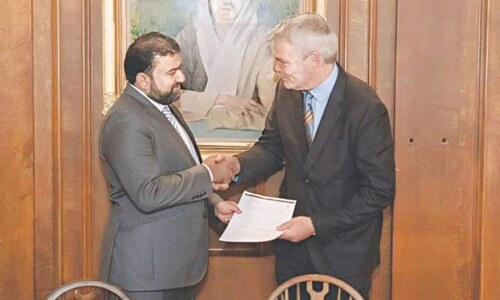THE deteriorating situation in Iraq and the rapidity with which the Al Qaeda-like Islamic State of Iraq and al-Sham militia has advanced pose a threat not only to the oil-rich Arab country but to the entire region. Evidently, the fall of Mosul did not goad the Baghdad government into action, thus giving Iraq’s top cleric Ayatollah Ali Sistani greater room to check the advance of the Sunni extremist ISIS. In the longer run, however, the Shia-dominated forces’ success in taking on the ISIS will create new problems for Iraq as it will challenge the writ of the government led by Prime Minister Nouri al-Maliki. The ISIS is so radical that even Al Qaeda, of which it is an offshoot, is wary of it. Its morale boosted by what happened at Mosul, where dozens were summarily executed and no less than 30,000 troops of the Iraqi army fled instead of doing their duty, the ISIS is planning larger operations and vying for more territory. Should it advance towards the Shia south, the situation could take a turn for the worse, leading to a larger and bloodier civil war and endangering the unity of the Iraqi state. How Baghdad hopes to stem the ISIS advance and raise the morale of its troops is unclear.
The Iraqi situation now warrants a throwback to 2003 when George Bush and Tony Blair chose to launch an invasion to secure a stockpile of weapons of mass destruction which was not there. The result was the end of an Iraqi regime — no doubt authoritarian — which had frustrated every attempt by Osama bin Laden to turn Iraq into his base. Since then, it is the Iraqi people who have suffered the most, with conservative estimates putting the number of dead during the occupation at 200,000. No wonder, sectarianism should have raised its head and inflicted further miseries on them. The ISIS represents that phenomenon.
The situation is no doubt grave, but there is still time to fight back. The ISIS is bound to lose steam and concentrate, instead, on consolidating its territorial gains. This should give time to Saudi Arabia and Iran, both of which regard the ISIS as a terrorist organisation, to get together and put their weight behind the beleaguered Maliki government. Such a joint approach by two of Iraq’s powerful neighbours could have a salutary effect not only on the battlefield that is Iraq but on the larger conflict zone in the Levant. That the Tehran government should now be led by a moderate like Hassan Rouhani opens up new possibilities for Iran and Saudi Arabia to come together to work for peace. Iraq’s balkanisation and its consequent impact on the region are too painful to visualise.
Published in Dawn, June 15th, 2014






































